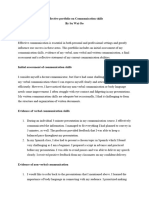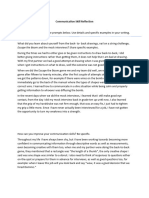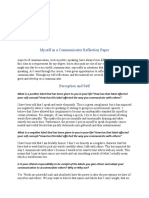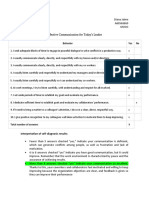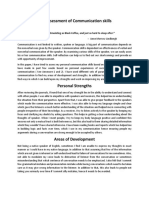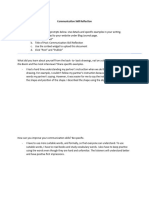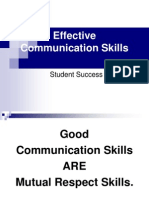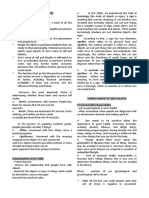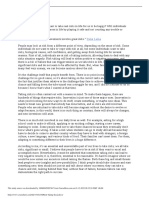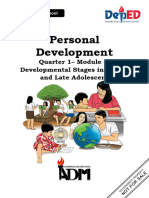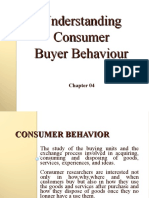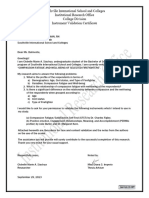Reflec on on Effec ve Communica on Skills
Introduc on: Engaging in a meaningful conversa on about a controversial topic provided me with a
valuable opportunity to apply and reflect on the communica on skills I have learned in this module. I
chose to discuss a current workplace challenge with a colleague, focusing on listening intently, using
nonverbal cues, and paying a en on to feelings (emo onal intelligence). This reflec on will explore how
these skills made me a more effec ve communicator, the feedback I received from my partner, and the
overall impact on my communica on abili es.
Applica on of Communica on Skills: During the conversa on, I employed several key skills that
enhanced my effec veness as both a speaker and listener. Firstly, I prac ced ac ve listening by
maintaining eye contact, nodding, and providing verbal acknowledgments such as "I see" and "That
makes sense." This made my colleague feel heard and valued. Secondly, I used nonverbal cues to
accentuate my words. For instance, I leaned forward slightly to show engagement and used open hand
gestures to emphasize key points. Lastly, I paid close a en on to my colleague's emo ons and
responded with empathy, acknowledging their feelings and valida ng their concerns.
Feedback from My Partner: My colleague provided posi ve feedback on my communica on skills. They
commented, "Your ac ve listening made me feel truly understood," "The way you used gestures helped
me follow your points be er," and "I appreciated how you acknowledged my feelings; it made the
conversa on feel more genuine." These comments highlighted the effec veness of the skills I applied
and reinforced the importance of these techniques in fostering meaningful interac ons.
Observa on of Partner’s Behavior: While I was speaking, my colleague exhibited a en ve behaviors
such as nodding, maintaining eye contact, and occasionally taking notes. When listening, they mirrored
my empathe c responses by paraphrasing my points and asking clarifying ques ons. This reciprocal
engagement created a collabora ve and respec ul environment, making the conversa on more
produc ve and enjoyable.
Emo onal Response to Partner’s Reac on: My colleague's posi ve reac ons and a en ve behavior
made me feel appreciated and respected. Their engagement and valida on of my points boosted my
confidence and encouraged me to share more openly. It was gra fying to see that the communica on
skills I had prac ced not only enhanced the conversa on but also strengthened our professional
rela onship.
Reflec on on Communica on Improvement: Through this experience, I have observed significant
improvements in my communica on abili es. I am more mindful of ac ve listening, empathe c
responses, and nonverbal cues. These skills have made me a more effec ve communicator, enabling me
to connect be er with others and address issues construc vely. From an engineering communica on
perspec ve, these skills are invaluable. Clear and empathe c communica on is essen al for successful
collabora on, project management, and problem-solving in engineering. The ability to understand and
address team members' concerns fosters a posi ve work environment and enhances overall produc vity.
Conclusion: In conclusion, the skills learned in this module have profoundly impacted my communica on
effec veness. By ac vely listening, using nonverbal cues, and demonstra ng emo onal intelligence, I
have become a more empathe c and engaging communicator. This experience has reinforced the
importance of these skills in both personal and professional contexts, par cularly in engineering
�communica on, where collabora on and understanding are key to success. I am commi ed to
con nuing to develop and apply these skills to foster meaningful and produc ve interac ons.





